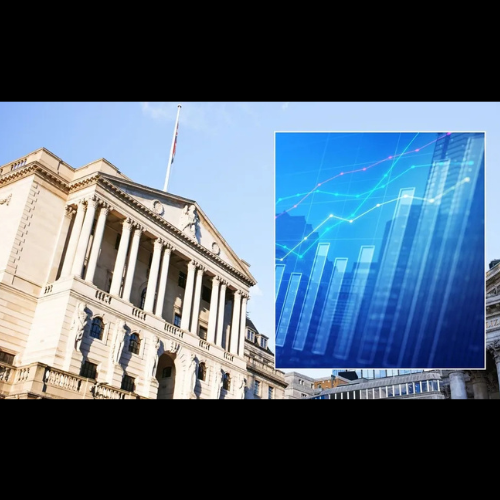To comprehend the relationship between the market and the economy is to unearth the very intricacies of contemporary socioeconomic dynamics. These seemingly inseparable entities, while intricately interwoven, do not always move in lockstep. They demonstrate a captivating dance that is both perplexing and enchanting, characterized by moments of synchronized rhythm and, quite paradoxically, by episodes of stark disconnection.
To start, we need to define our two subjects: the market and the economy.
The “economy” refers to the sum total of all the transactions, the buying and selling, the labor and productivity, and the creation of goods and services within a given geographic region (usually a country). It embodies the total activity of a society’s production and consumption of goods and services.
On the other hand, “the market,” in this context, typically refers to the stock market, a component of the financial market where securities, including equities of corporations and other financial instruments, are bought and sold. The stock market is where corporate success and economic predictions are transformed into stock prices and investment portfolios.
Connection between the Market and Economy
The theory of efficient market hypothesis suggests that financial markets are the epitome of rationality and always accurately reflect all available information. The stock market, therefore, should be an economic barometer, providing real-time feedback on the economy’s health and future prospects. This makes intuitive sense – as businesses prosper within a healthy economy, their profits rise, enhancing the allure of their stocks, thus driving market indices upward.
The market also plays a vital role in the economy by facilitating the allocation of resources. Through Initial Public Offerings (IPOs) and subsequent trading, the stock market enables the channeling of capital from investors to businesses that need funding. This fuels innovation, employment, and ultimately, economic growth.
Disconnection between the Market and Economy
Yet, the conundrum lies in the fact that the stock market and the broader economy often diverge, a phenomenon seen in numerous instances such as the economic downturns of 2000 and 2008, and most recently, in the Covid-19 pandemic era where the stock market boomed amidst a contracted global economy.
This disconnection can be attributed to several factors.
Market Anticipation: The stock market is forward-looking, often pricing in future economic activity, not the present or the past. Therefore, the market can rise in anticipation of a future economic recovery even amidst current economic turmoil.
Interest Rates and Monetary Policy: The market is highly responsive to monetary policy changes and interest rates. Low interest rates can inflate asset prices and drive the stock market higher, even if the broader economy is struggling.
Sectoral Disparities: The economy is an amalgam of multiple sectors. Sometimes, while certain sectors suffer, others may thrive, leading to a buoyant stock market that belies overall economic distress.
Concentration of Wealth: The market is disproportionately influenced by large corporations. Thus, when tech giants or large corporations prosper, they can propel market indices upwards, even as smaller businesses and vast swaths of the economy languish.
Investor Psychology: The market is swayed by investor sentiment, which can sometimes be irrational or driven by speculation, causing market movements that deviate from economic realities.
This exploration merely scratches the surface of the complex dance between the economy and the market. For an astute observer, it emphasizes the need to appreciate the nuances of the market-economy relationship. It elucidates that market trends are not always a mirror to the economy, and conversely, economic indicators do not always dictate market performance.
The market-economy dichotomy, thus, presents a fascinating study, one that invites continual exploration, understanding, and engagement. It serves as a humbling reminder of the unpredictable nature of financial systems, encouraging investors, economists, and policy-makers to constantly question, analyze and understand the many layers of this intricate relationship.
Disclaimer: The content provided in this article is for informational purposes only and should not be considered financial advice. Always conduct thorough research and consult with a qualified professional before making investment decisions.







